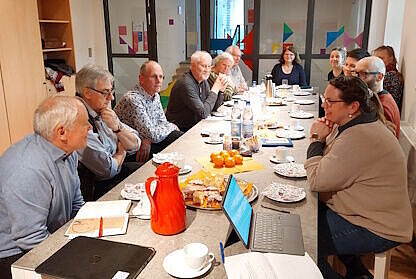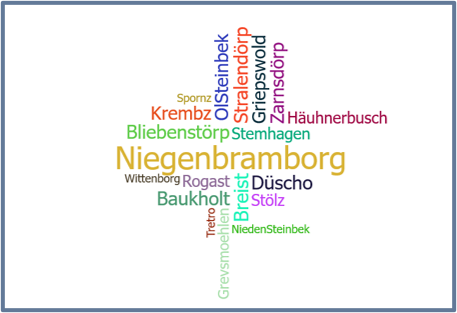Voluntary Cultural Work in Rural Regions (EKLAIR)
The value of voluntary cultural work for the quality of life in rural areas is undisputed. It creates and has created opportunities in rural regions that allow the people living there to define, practise and satisfy their cultural needs autonomously. Based on this premise, the project ‘EKLAIR (Ehrenamtliche Kulturarbeit in ländlichen Regionen) - Voluntary cultural work in rural regions. A comparative study in the Oldenburger Münsterland and the district of Rostock’ empirically compares the factors on which voluntary work is based in two regions, which forms of involvement have proved successful and how it can be supported in the future.
The joint project of the University of Rostock and the Cultural Anthropological Institute Oldenburger Münsterland (KAI-OM) in Cloppenburg is dedicated to voluntary cultural work in rural areas. Rural regions are particularly characterised by the fact that cultural offerings are very much shaped by voluntary work. The cultural infrastructure here depends above all on the individual commitment of culturally active people from the centre of society. However, there are signs of change and sometimes a partial decline in voluntary work; even in regions where voluntary work traditionally played a major role and was highly regarded, it now appears to be facing challenges and losing its appeal.
Low German Place Names in Mecklenburg-Western Pomerania
Since 2021, it has been possible to add Low German additional signs to the official place name signs in the federal state of MV. The Low German names are based on a resolution passed by the Mecklenburg-Western Pomeranian state parliament at the beginning of 2020. In March of the following year, the responsible Ministry of Infrastructure issued a decree authorising the districts and independent towns to add Low German supplementary signs for town entrance signs. The background to these activities is the intensified efforts of the northern German federal states to promote Low German as a regional language in the context of the European Charter for Regional or Minority Languages from 1992, which came into force in the Federal Republic of Germany in 1999. Part III of the Charter, which was signed by the five federal states of Mecklenburg-Western Pomerania, Hamburg, Lower Saxony, Schleswig-Holstein and Bremen, also stipulates measures for the promotion and use of Low German in administrative authorities and public service organisations under Article 10.


